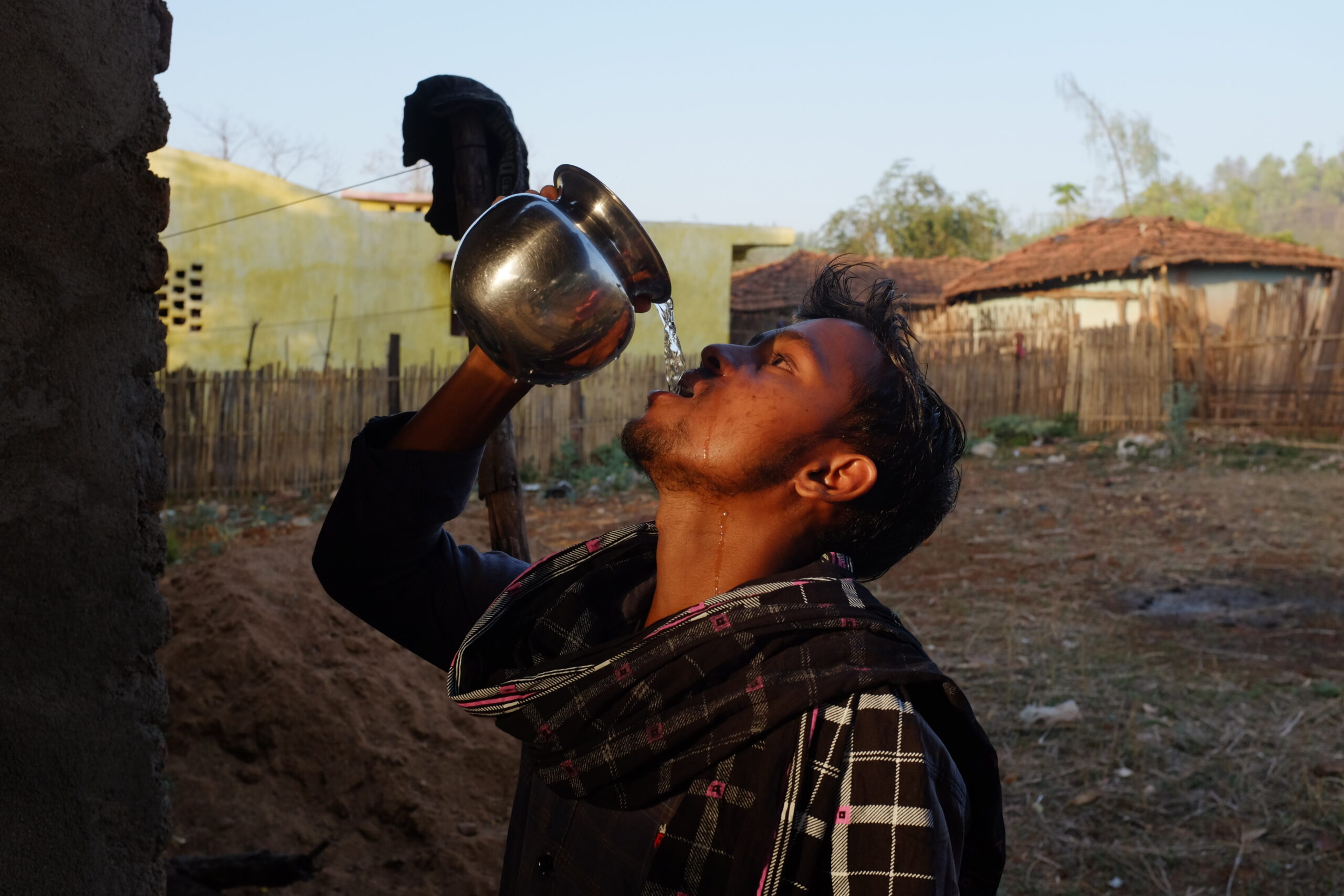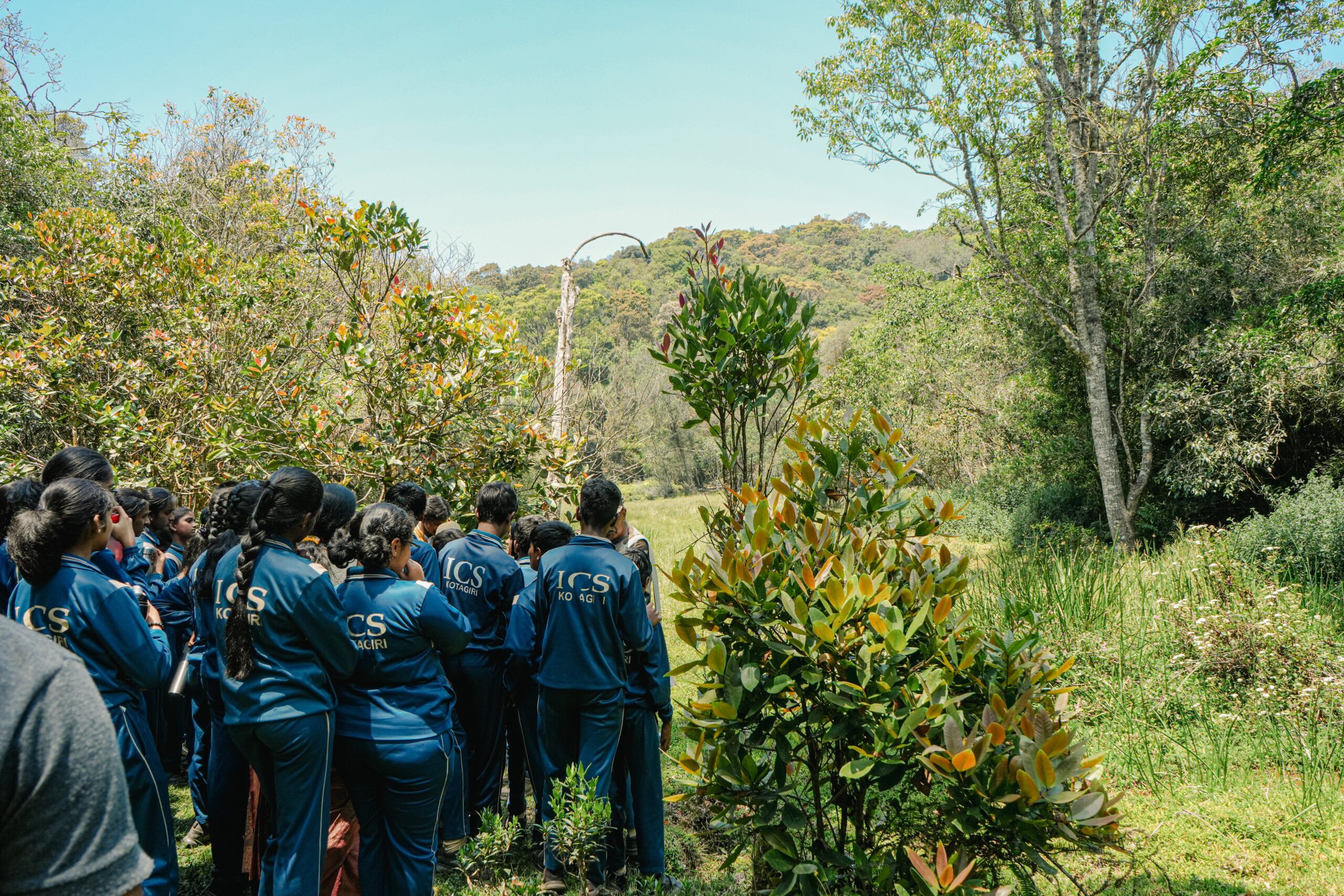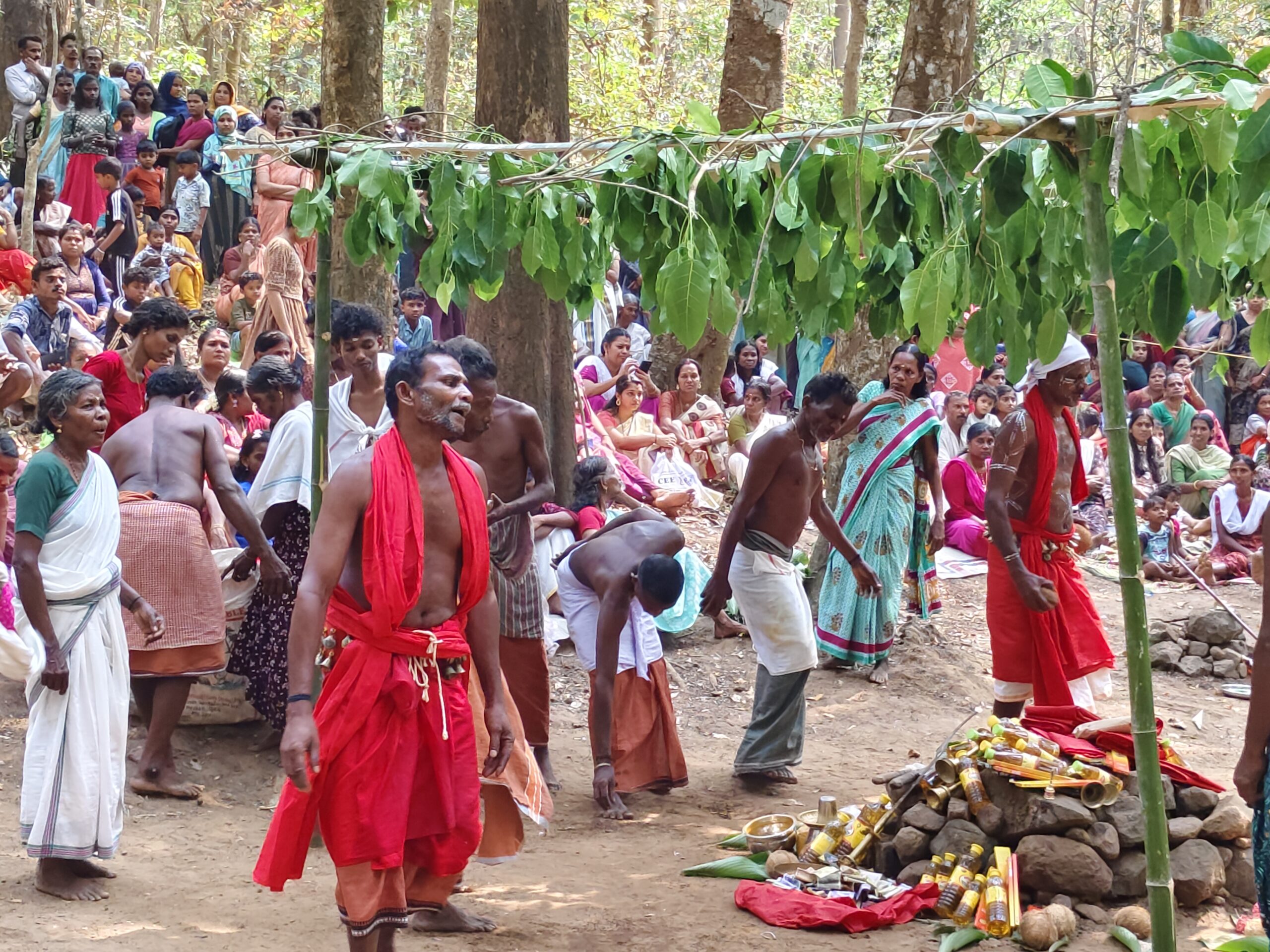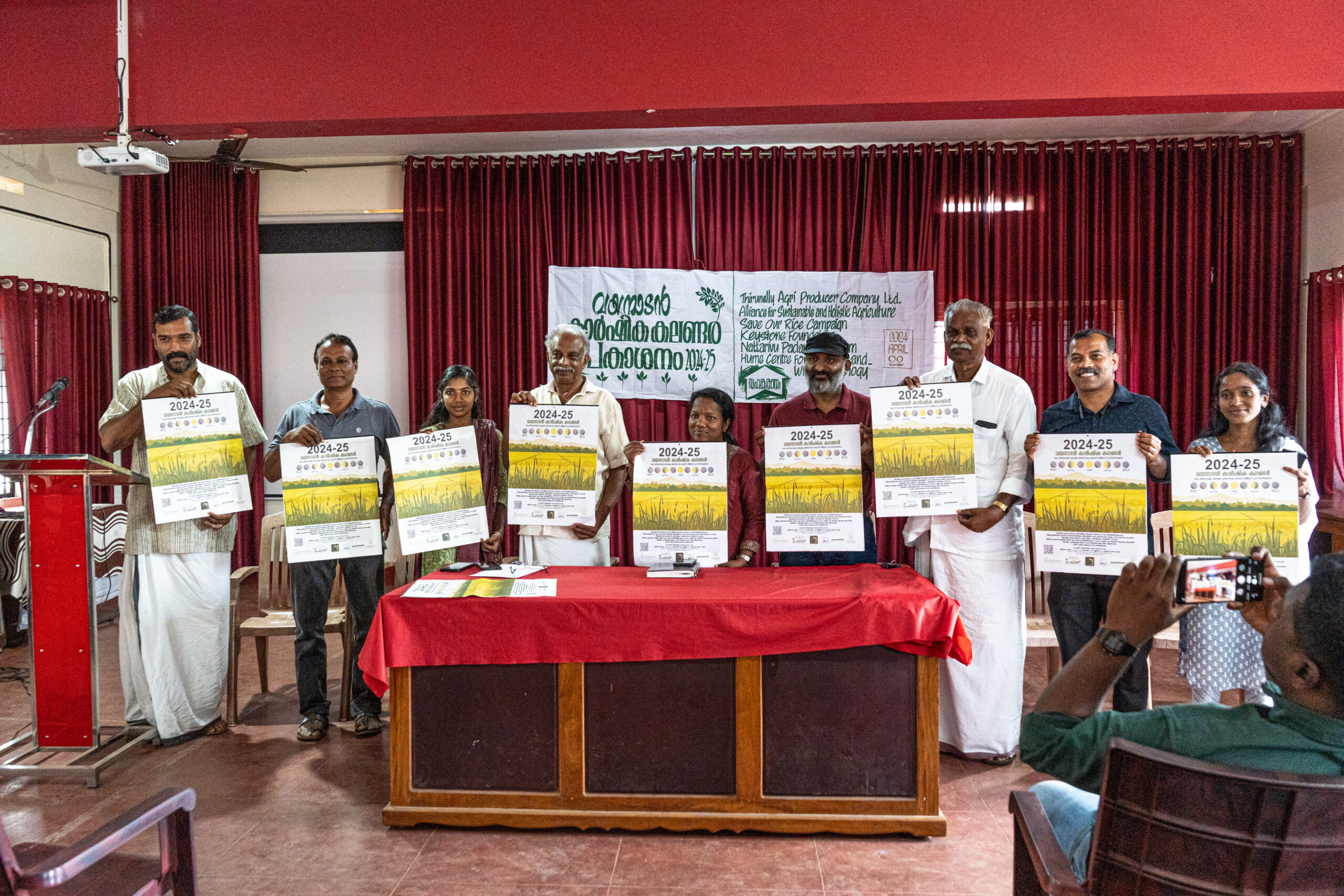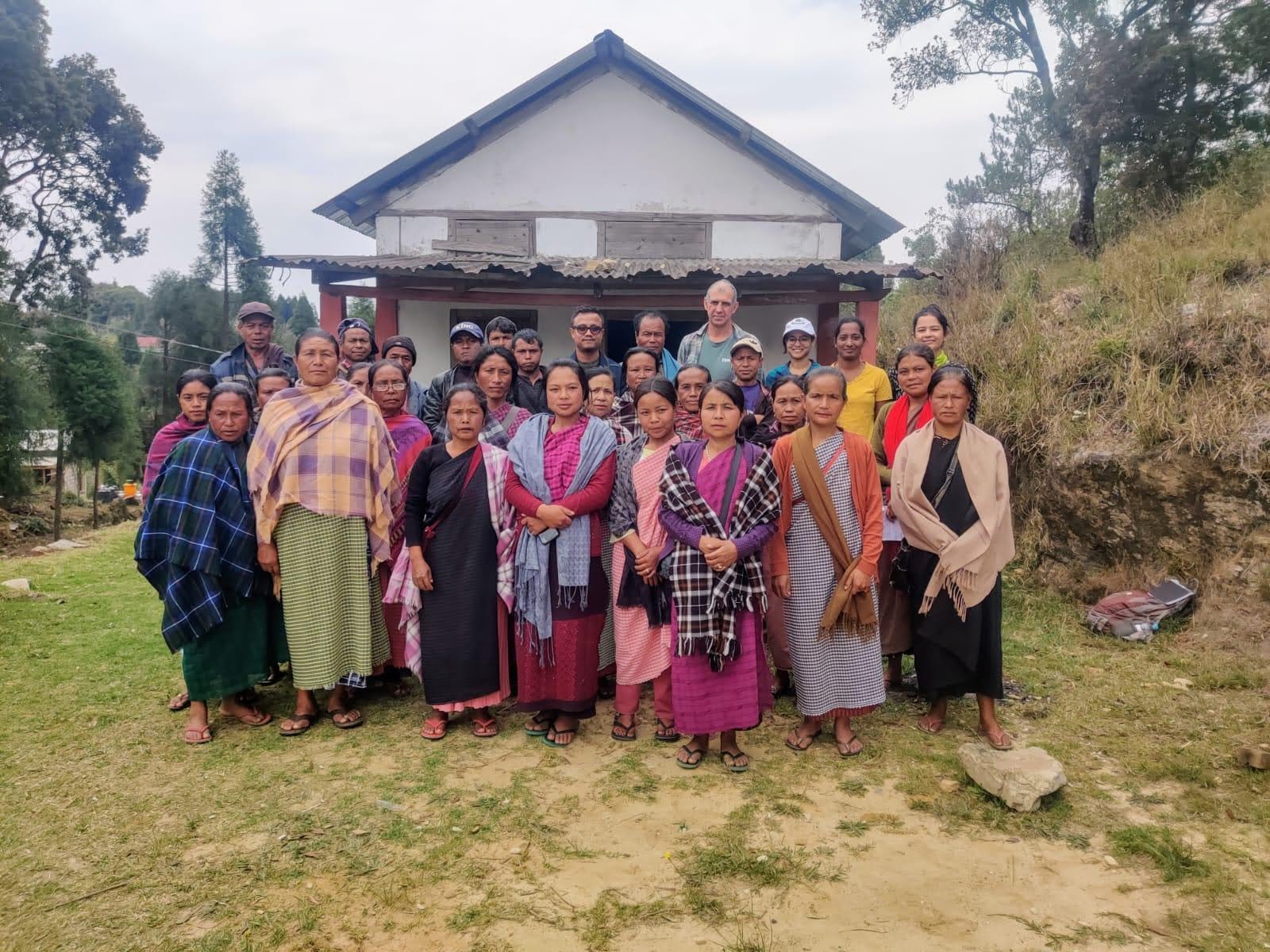April 23, 2024
By Rohan Mukerjee and Soumik Banerjee
Keystone Foundation commenced work in the Paharia villages of Sundar Pahari Block, Godda District, in 2017 through the Using Diversity (UD) Network with Soumik Banerjee as a partner. The UD network enables civil society groups and community leaders to revive and promote uncultivated foods and traditional mixed cropping system in different parts of India. The network carries the message of food sovereignty, diet diversity and health and nutrition of Adivasi people.
Water has always been a burning issue for Paharia communities of the Rajmahal hills. The community in Sundar Pahari, women in particular, had highlighted water woes in the course of Participatory Action Research (PAR) exercises and during interactions while implementing different projects in the area. This led to the implementation of water security initiatives in Sundar Pahari from 2021 onwards. Even though the hills abound with seasonal springs, the villages are 30-150 meters above the source. This creates an enormous burden of carrying headloads of water up the hills for different domestic uses, including drinking. Women bear the disproportionate burden of carrying hundreds of litres of water over treacherous and steep terrain several times a day, all round the year. As many are already underweight and anemic, this takes a huge toll on their health in addition to other heavy loads of fuelwood, etc. More than 50% of the springs are seasonal and almost dry up with the end of monsoon. This issue forces women to cover more distances, while also having to deal with neighborly conflicts due to their expanded searches for water. Ground Water is unreliable since the water table is very low in the hills and boring trucks cannot reach most villages. Dug Wells are the only interventions made by mainstream agencies, many of which are ill designed or dry up in summer.
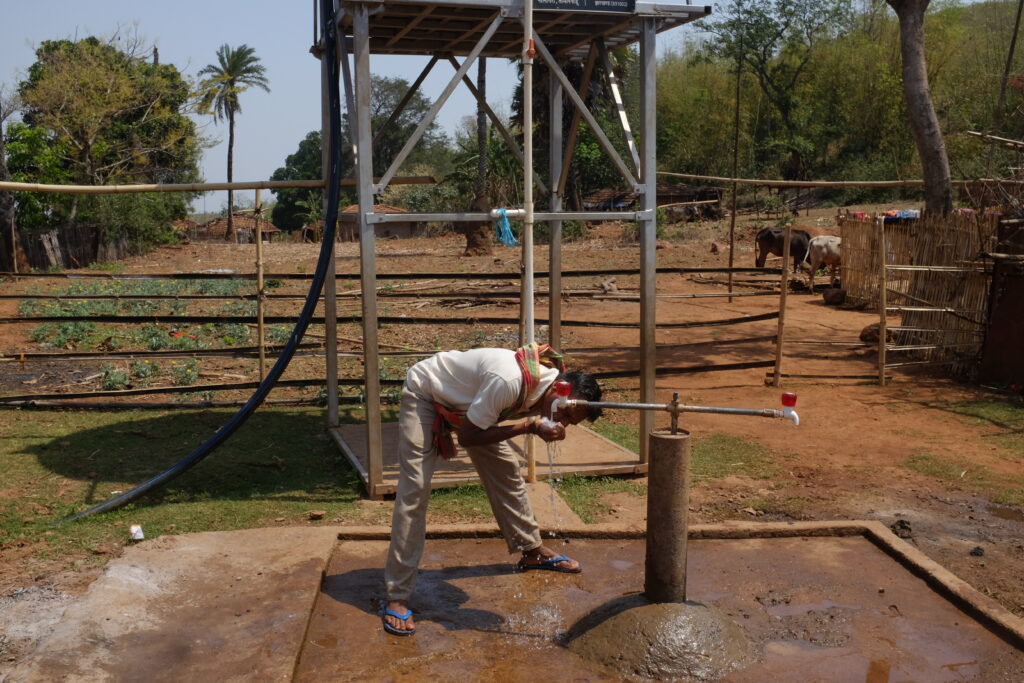
In view of the above realities – access to round the year water for domestic chores in the village has
been a long desired need that has remained unaddressed. After surveys of villages water sources by Community Water Stewards, we identified viable springs for the establishment of Solar Powered Domestic Water Lifting / Supply System, with the first system being established in 2022 in the highest village in the block-Porkhani. Subsequently, 3 more such systems have been established. Alongside this, Community Water Stewards like Mahadev Paharia have received training and are regularly carrying out monthly recordings of various par water parameters namely – TDS, pH, Coliform, Flow Rate etc for all the Springs in 3 Panchayats (30 villages). They also record daily rainfall, temperature and humidity. This information is shared with the local village communities through regular awareness programs and community consultations, which lay the platform for the development of community water management plans.
In early April 2024, accompanied by Water Stewards Mahadev Paharia, Rama Paharia, Leta Paharia, Field Assistant Surja Paharia and Technical Consultant Anil Kumar Dubey, I visited several Paharia villages and hamlets in Bada Paktari Panchayat. While in some of the villages water security initiatives have already been established, we are still in the process of developing plans along with other village communities to address water security issues.
On the 1st of April, we visited the most recently established Water Supply System which serves Paharia hamlets in Balami and Rakha villages. In Pradhan Tola of Balami village which is home to 35 households, there is one tube well which was connected to a Jal Minar (Community Overhead Tank for storage and supply of water using Solar panels). However, the Jal Minar malfunctioned around a year ago and is yet to be repaired. Upar Tola hamlet, which has 25 households did not have any viable water source of their own. In the adjoining village of Rakha the Paharia Tola which has 15 households did not have any source of drinking water within their hamlet. There is a well around 100 meters from their hamlet in Santal Tola (Hamlet) of Rakha villages but the residents of this hamlet do not encourage the villagers of Pahari Tola to use this well. As a result they were dependent on Madi Jhola spring.
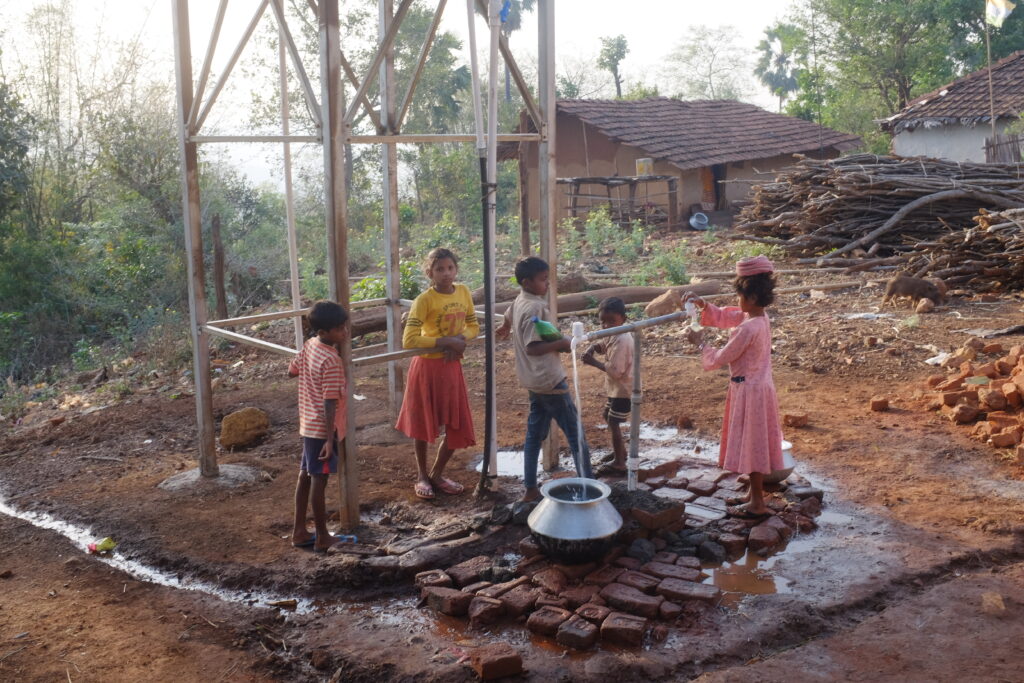
The households of Balami’s hamlets also supplement their water supply from this source. We inspected this spring during a field visit of a Water team in September 2023. Since then efforts to establish a Solar Powered Domestic Water Supply system commenced. Barring some fencing and cementing work, the system has been established, with a well with a solar powered submersible pump set up at Madi Jhola. A 5000 liter overhead tank with 2 taps has been set up in Balami Upar Tola and an outlet has also provide in Balami Pradan Tola to supplement the water from the tube well. In Rakha, a 2000 litre overhead tank with two taps has been set up. The total cost of establishing this system was around Rs. 6,05,000, with the concerned communities contributing labour for various tasks like well construction and laying of pipes. Communities in these hamlets are in the process of establishing water user groups to manage and look after the water supply systems.
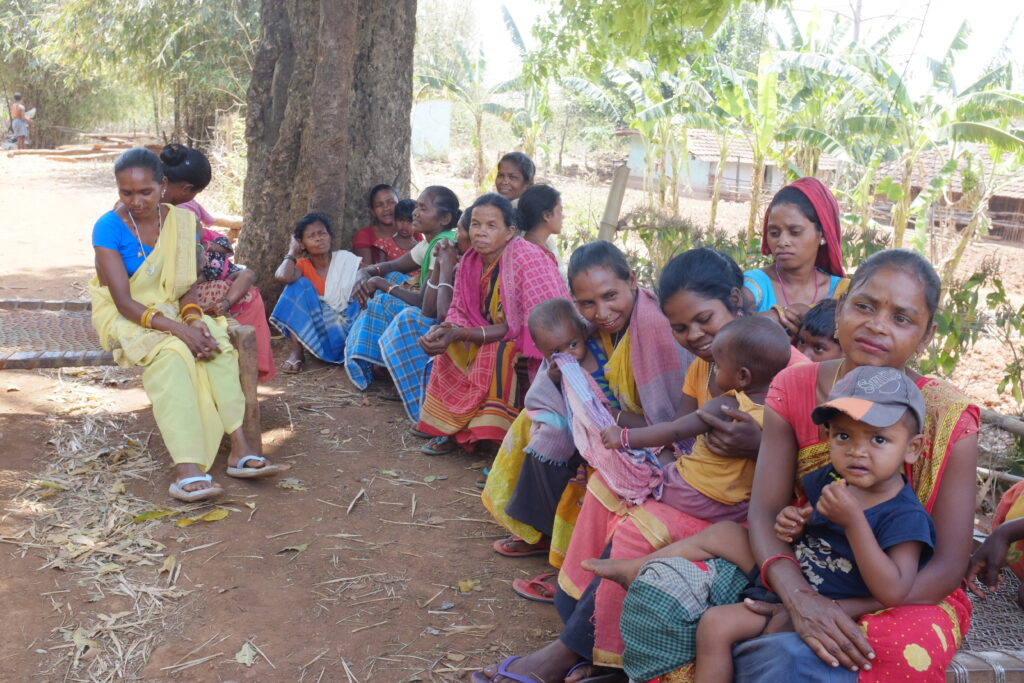
Next, we visited Bada Palma village, where a Solar Powered Domestic Water Supply System was established in 2023. The system’s well and solar panels have recently been fenced to protect vital components from theft. Here, a 5000 liter overhead tank with 2 taps has been set up around 335 meters from Kandian Jhola spring, where a well has been constructed for the submersible pump. This system supplies drinking water to 28 households of Tisro Dade Toli (Hamlet) and 10 to 15 households of Upar Tola. Under the Har Jhar Nal Yojna of the government’s Jal Jeevan Mission, a large cement tank has been constructed in Bada Palma to supply water to the households of Bada Palma and adjoining villages. However, Dharmendra Paharia, the Mukhiya (Headman) of Bada Paktari Panchayat shared that a boring well was dug around 850 feet deep but even then, the water was less. He feels that the boring well will not be able to meet the water needs of all the households to be covered. A majority of the Jal Jeevan Mission water supply initiatives are based on groundwater. However, these initiatives are not sustainable in hill areas like Bada Paktari panchayat–without groundwater rejuvenation efforts this can pose serious threats to future water availability, even from existing springs.
We also visited Porkhani, where we had established our first water supply system in 2022. Water is being lifted from Ghagra Jhola spring where a well has been constructed with solar panels set up adjoining the spring. Porkhani had a vertical head of 105 feet and a run over 1640 feet and after discussing with several manufacturers on different types of pumps, the Keystone Team found it difficult to get such specification pumps from established brands. After several explorations, testing and discussions with different companies, the system was successfully established in September 2022. Currently 40 households are receiving water from this system. The well and solar panels have been fenced for protection and 300 saplings of different forest species like Mahua, Arjun, and Asan have been planted along the hill slopes around the spring.
After the establishment of the water system in Porkhani, an incomplete government system was completed. Under this, an overhead tank has been connected to an existing dug well with water being drawn using solar panels. Under the Har Jhar Nal Yojna households, 2 of Porkhani’s hamlets have received water outlets connected to a tank that draws water from. Madi Jhola spring. This system is known as Jharna Kup and is more viable than boring wells in this geography. While a few taps are still not working, a majority of the connections are working.
The Mukhiya of Porkhani Bamehwar Pahari was appreciative of the solar water supply initiative, the first such initiative in their village and he emphasized the need to establish committees in his and other villages to manage and protect the water supply systems as well as the vital water sources on which they depend. In addition to villages where Solar Domestic Water Supply systems have been established, we also visited two hamlets that are still facing water scarcity issues. Durio village has 3 hamlets – Kuma Tola (16 households), Beech Tola / Pradhan Tola (40 households) and Tulmi Tola (35 households). We visited Tulmi Tola, where the villagers shared that while the central hamlet, Pradhan Tola, has received various government entitlements and benefits, the other 2 hamlets have been largely neglected and marginalized. Even in the context of water, Pradhan Tola has an existing boring well along with a new well thta has been established under Jal Jeevan mission, but the other hamlets are yet to receive any reliable water supply system. Tulmi Tola has one dug well which mostly dries up in summer months and it takes very long to draw water from it. As a result, villagers mostly depend on Ghagra Jhola spring, which is around 512 meters from the hamlet and villagers, especially women, need to traverse a treacherous steep and narrow rocky trail to access this spring. Community water stewards have been testing Ghagra Jhola and along with technical consultant Anil Kumar Dubey are exploring the possibility of establishing a Solar Powered Domestic Water Supply System from Ghagra Jhola.
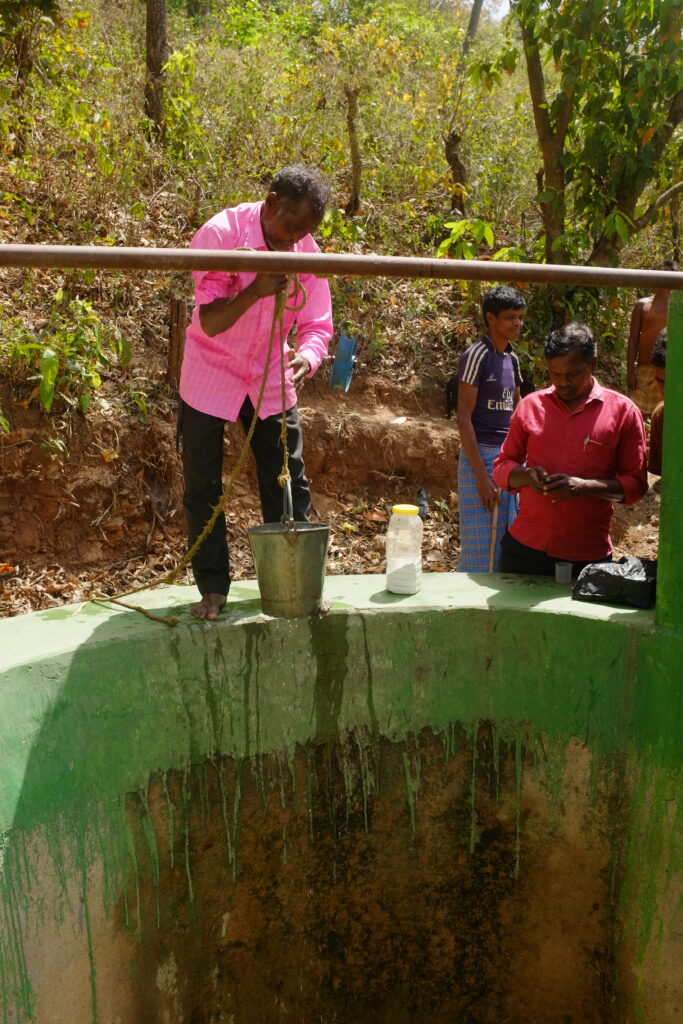
Our final stop was Manspara Upar Tola hamlet which is home to 55 Paharia households. Manspara is at the border of Bada Paktari and Goradhi Panchayat’s and is very difficult to access due to poor roads as a result of which the village has been deprived of many services and schemes. Manspara Upar Tola has very limited options for accessing water. As a result of the continuous efforts of the villagers a well was constructed through the Panchayat funds last year at Dumri Muli spring which is around 200 meters from the hamlet. Currently however, the well has only 3 feet of water and in order to establish a Solar Powered Water Supply system we need to explore the viability of increasing the depth. The hamlet has an older well but it takes very long to collect water from here. We also made our way through forests and undergrowth to Bari Jalia spring which currently has around 2 feet of water and is 400 meters from the hamlet. Along with Manspara’s villagers our team will explore the possibilities of establishing a water supply system and improving existing water sources.
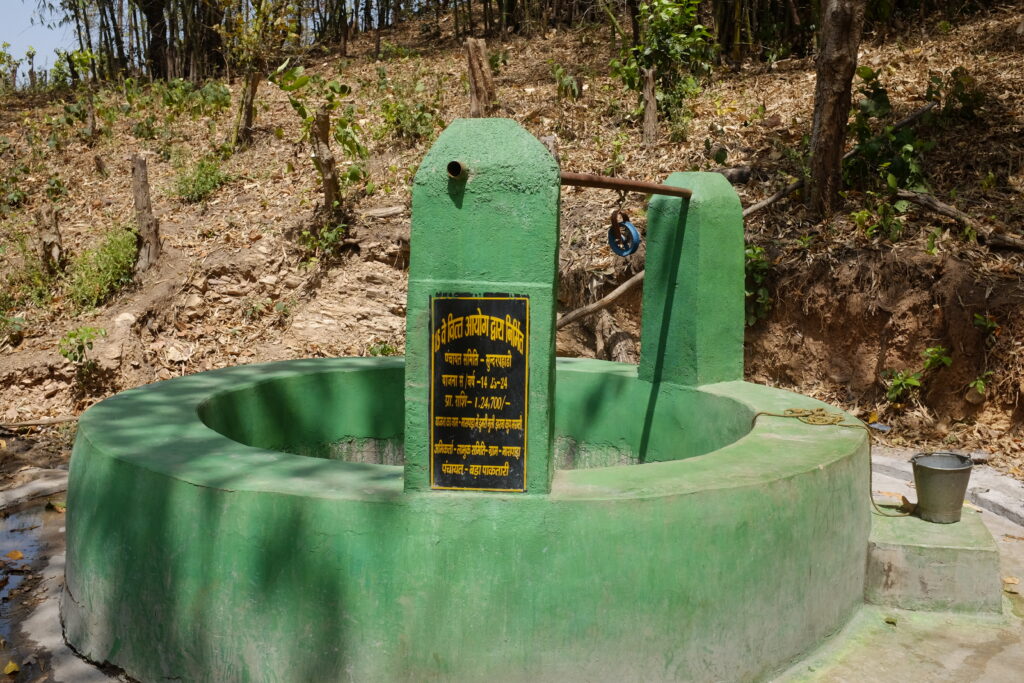
With Sundar Pahari experiencing erratic and deficient rainfall year after year, the water sources of the region are under immense pressure. As a result, there is an urgent need for a community driven holistic initiative to secure, conserve and rejuvenate springs and other water sources while ensuring access to drinking and domestic water in all villages. Keystone’s team is committed to a long-term engagement with the Paharia community towards this goal.

